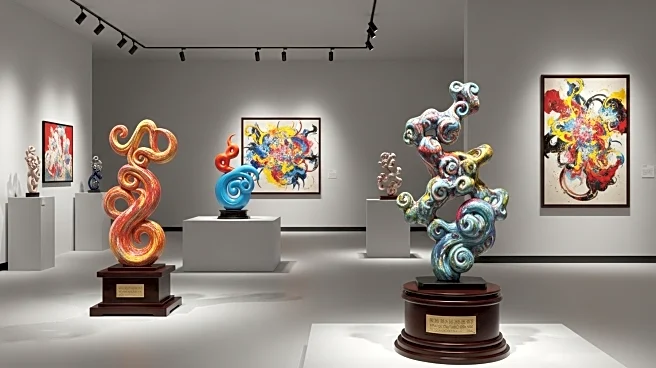What's Happening?
Frieze Seoul has opened its fourth edition with 120 galleries from 30 countries, marking a significant presence of Asian galleries for the first time. The fair reflects Seoul's growing role in the art world and the resilience of its market despite political uncertainty, including a brief martial law declaration last December. The event has received unprecedented official support, with South Korea's First Lady and President participating in the opening ceremonies. The fair showcases emerging regional voices alongside established international players, emphasizing institutional attention over sales.
Why It's Important?
Frieze Seoul's focus on Asian galleries underscores the region's increasing influence in the global art market. This shift may lead to greater recognition and opportunities for Asian artists and galleries, potentially reshaping the dynamics of the art world. The fair's resilience amid political challenges highlights the strength and adaptability of the art market in South Korea, offering insights into how cultural events can thrive in uncertain environments.
What's Next?
The success of Frieze Seoul may encourage further investment and participation from international galleries and artists in Asian markets. The fair's emphasis on institutional attention could lead to increased collaborations and exhibitions featuring Asian artists globally. Observers will be watching to see how Frieze Seoul's approach influences other art fairs and the broader art market.
Beyond the Headlines
The political context surrounding Frieze Seoul raises questions about the role of art in addressing and reflecting societal issues. The fair's ability to navigate political uncertainty may inspire discussions on the intersection of art and politics, potentially influencing future cultural events.










